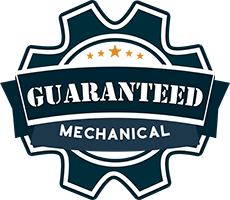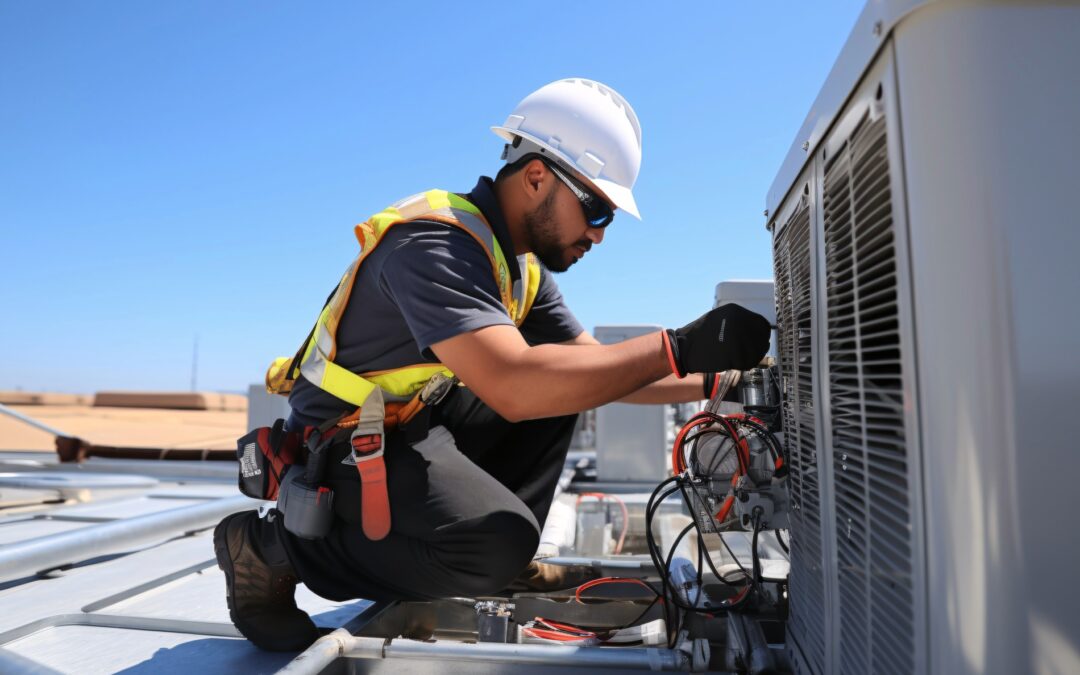An HVAC system that constantly turns on and off can be more than just an irritation—it can be a sign that something is wrong. This issue, known as short cycling, doesn’t just disrupt airflow in your home. It can put added stress on the system, increase your utility bills, and cause inconsistent indoor temperatures. If you’re living in Aurora and notice your HVAC system is always firing up then shutting down just minutes later, there’s likely an internal issue that needs to be addressed.
A properly functioning HVAC system should run in complete cycles that last long enough to heat or cool your home, then shut off until the next cycle is needed. When the system shuts off prematurely and restarts frequently, it won’t have enough time to do its job, and you’re left uncomfortable inside your own house. Below are some common causes for short cycling and ways to start diagnosing why your HVAC system might be behaving this way.
Common Causes of Short Cycling
Short cycling typically stems from an internal malfunction or imbalance in the system’s airflow or sensors. Catching the issue early can help stop damage from spreading to other parts of your HVAC unit. Here are some of the most common causes that might be creating this pattern:
1. Thermostat Problems
A thermostat that’s not working right can trick your HVAC system into thinking it reached the right temperature. This can cause it to stop running even when your home still feels too hot or too cold. Wiring issues or placement in a drafty hallway can also confuse the system.
2. Dirty or Blocked Air Filters
When filters are clogged, they restrict airflow, which strains the system. This improper airflow can lead to overheating and cause the system to shut off to protect itself.
3. Refrigerant Leaks
Low refrigerant levels will affect pressure inside the system. If your HVAC unit detects unsafe pressure, it will turn off as a protective measure. Over time, this cycling wears out the compressor, making things worse.
4. Incorrect System Size
Oversized systems cool or heat fast, but they turn off before evenly spreading that comfort throughout your home. Undersized systems work too hard, shorten the cycle time, and still may not reach the set temperature. Both will show signs of short cycling. For example, if your home cools down too quickly in one room while other rooms feel too warm, this could be your system shutting down before finishing the job.
Diagnosing what’s behind short cycling can often start with a visual inspection or a quick adjustment.
How to Start Diagnosing the Problem
You don’t need technical knowledge to notice something is off with your HVAC system. There are a few simple steps you can take around the house to guide the discussion when it’s time to call for HVAC repair in Aurora:
– First, check your thermostat.
– Is it still in the right mode? (Cool or Heat depending on the season)
– Try adjusting the set temperature slightly and listen to how the system responds.
– If it’s placed near a windy window or a heat source, that may be triggering early shutoffs.
– Second, look at your air filters.
– Filters should be changed monthly during steady use.
– If a filter looks dark or clogged, replace it. Dirty filters can disrupt airflow and cause your system to cycle faster.
– Third, observe your HVAC system’s startup.
– Does it turn on and off in under 5 minutes consistently?
– Do you hear hissing or dripping sounds around the outdoor unit? This could indicate a refrigerant leak.
– Lastly, think about how well your system keeps your home comfortable.
– If it heats or cools certain rooms too fast or seems to struggle to keep up, it might be the wrong size for your space.
Taking these steps won’t solve the issue, but they offer helpful clues that can speed up the repair process when our professionals inspect the system. The goal is to catch the cause early before short cycling turns into higher energy bills or a full system failure.
Why HVAC Repair Should Be Handled by Professionals
Short cycling doesn’t just make your home uncomfortable. It chips away at your HVAC system’s performance every time it happens. When a system starts and stops often, parts like compressors and blowers wear out faster. That means more repairs down the road and shorter system lifespan. You might also notice your utility bills creeping up, since the system burns extra energy during frequent starts.
Some homeowners wait months before calling for help, hoping the issue is temporary. But short cycling rarely fixes itself. If ignored, it leads to bigger problems including complete system failure. That’s why calling trained professionals is recommended early on. Our technicians can figure out what’s wrong, whether it’s electrical wiring, sensor programming, or airflow imbalance. They bring the right tools and training to spot what a quick visual check won’t catch.
Once the issue is diagnosed, proper repair ensures it doesn’t return. That’s better than dealing with repeat breakdowns or guessing at the real cause. Whether the system needs a new capacitor, coil cleaning, or thermostat calibration, certified HVAC repair will help your home stay comfortable and your system stay protected. And when repairs are done right the first time, you’re less likely to end up with another emergency in the middle of a hot or cold spell.
Preventive Homeowner Habits to Avoid Short Cycling
After your system gets repaired, the next step is protecting it going forward. Routine upkeep isn’t just for emergencies it helps reduce the odds of short cycling coming back. These small steps can support your HVAC system and keep it working just like it should:
– Change your air filter every 1 to 3 months, depending on how often your system runs or if you have pets in the home.
– Keep the area around your outdoor unit free from leaves, branches, and other debris.
– Don’t block vents or ducts with furniture or rugs, which can affect airflow and pressure.
– Double-check thermostat settings when seasons change to make sure they’re programmed for current temperatures.
– Schedule a professional HVAC inspection at least once a year, even if the system seems fine. Some issues develop slowly and aren’t easy to spot without checking inside the unit.
Staying on top of these habits helps the system run like it’s supposed to. If something starts to feel off again especially if the system turns on and off more than usual it’s time to get an expert opinion before damage adds up.
Protecting Home Comfort in Aurora Starts with Action
Living in Aurora means you depend on your HVAC system to handle warm summers and colder months without fail. If your system starts short cycling, it’s more than just strange behavior. It’s a problem that affects how your home feels and how much you’re paying to keep it running.
Catching short cycling early and following up with trusted repair keeps your system working right when you need it most. From checking filters and thermostats to getting a full inspection, every step brings you closer to dependable heating and cooling without unnecessary breakdowns. Homeowners who stay proactive about HVAC health make comfort a lot easier to manage and a lot less expensive to maintain.
If your HVAC system is showing signs of short cycling and you’re looking for a reliable solution in Aurora, count on our experts who provide trusted HVAC repairto restore efficiency and comfort in your home. Guaranteed Mechanical understands how disruptive these issues can be, and our team is prepared to quickly diagnose and resolve them. For a quick estimate or to book a service visit, please contact us today.




Recent Comments